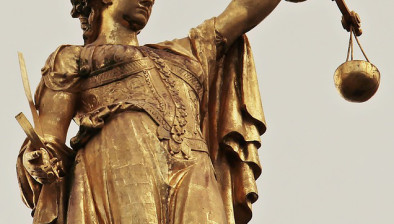High Court: State non-parties must make discovery in defamation case
The High Court has ordered that State non-parties must make discovery of documents to a defendant in a defamation suit.

About this case:
- Citation:[2020] IEHC 234
- Judgment:
- Court:High Court
- Judge:Mr Justice Bernard Joseph Barton
Background
The proceedings arose from defamation proceedings taken by Pat O’Mahony, Leonard Hyde and Labardie Fisher Ltd against Guardian News & Media Ltd. An article, entitled “Revealed: trafficked migrant workers abused in Irish fishing industry”, about Filipino fisherman Demie Omol’s alleged experiences on a trawler, appeared on The Guardian’s website in November 2015. It alleged that African and Asian migrant workers were being “illegally used as cheap labour on Irish fishing trawlers”.
Mr Omol said that he was recruited in March 2014 by Diamond H Marine Services Agency to work as a fisherman on the Labardie Fisher, an Irish trawler owned and operated by Mr O’Mahony and Mr Hyde. He said that he was taken on a four-day fishing trip without receiving any safety training for trawler fishermen in accordance with the Fishing Vessel (Basic Safety Training) Regulations 2001. He said he became very ill during the trip and had to be taken to Cork University Hospital where he was diagnosed with a form of stomach cancer.
Mr O’Mahony and Mr Hyde strenuously deny the claims made in the article and allege same defame them.
Brendan Kirwan SC, for The Guardian, moved a motion for discovery against two non-parties, the Department of Tourism, Transport and Sport and the Commissioner of An Garda Síochána, seeking documents held by the Marine Survey Office which related to the Labardie, Mr Omol and other crew members. The Guardian further sought statements, correspondence, and files held by the Human Trafficking Investigation and Coordination Unit and the Cork Division of An Garda Síochána, and reports and documents filed with the US embassy in Dublin for the purposes of the US State Department Trafficking in Persons report relating to fishermen in the Irish fleet.
The jurisdiction to make an order for non-party discovery is expressly vested in the High Court by Order 31, Rule 29 of the Rules of the Superior Courts.
The Department and the Commissioner contested those motions on the grounds of relevance and necessity, excess scope and oppression, public interest privilege, and confidentiality.
The Defence delivered to the defamation claim contained a plea of truth in respect of the statements. Mr Kirwan argued that the documentation sought is directly relevant to this plea, and that the non-parties are the only original source of the documentation, and as such orders for discovery were necessary.
He drew the court’s attention to the judgment of Ms Justice Fidelma Macken in McDonagh v Sunday Newspapers [2005] 4 IR 528, that a defendant pleading truth or justification by way of defence in a defamation action must have some evidence to support a plea and if so established is entitled to discover all documents. He also referred the court to Keating v Ireland [2013] IESC 22, to the same effect, where truth was central to the defence.
Mr Kirwan argued that the documents sought were not oppressive, and that there had been a concerted effort to narrow them down to those necessary. He referred to the dictum of Chief Justice Thomas Finlay in AIB v Ernst & Whinney [1993] 1 IR 375 that it is not a requirement on any Order 31 rule 29 application that a party to the litigation is required to identify the specific documents as distinct from the categories of documents in respect of which discovery is sought.
The court was referred to Livingstone v Minister for Justice [2004] IEHC 58 as authority for the proposition that the prosecution of crime is not in and of itself a reason for asserting pubic interest privilege. As the criminal prosecution of Mr O’Mahony and Mr Hyde in 2017 had been unsuccessful there was no reason to continue to assert privilege. As per McLaughlin v Aviva Insurance [2012] ILRM 487, where the exercise of balancing the public interest in the administration of justice with the public interest in the prevention of crime is discussed in the context of discovery consequent upon a claim for public interest privilege.
The Guardian argued that a communication made under circumstances of confidentiality does not automatically create a privilege against disclosure, referring to In Re Kevin O’Kelly [1974] 108 ILT 97. The appropriate course is to redact the name of the source or the particular piece of information when the affidavit as documents is being drawn; confidentiality per se is not a ground for refusal to make an order for discovery.
The Department and Commissioner non-parties argued that the categories of documents in question were different and distinct from the categories of documents ordered to be discovered by Mr O’Mahony and Mr Hyde. It was argued that court may have regard to alternative means of proof available to an applicant if unfairness at trial is to be avoided, as to which the Court was referred to the judgment of Mr Justice Joseph Finnegan in Hansfield Developments & Ors v Irish Asphalt Ltd & Ors [2009] IEHC 420, where he found that non-party discovery was not necessary because the information could be provided by way of expert evidence.
Conclusion
Mr Justice Bernard Barton held that the Department and Commissioner must make discovery of the documents to the Guardian. The four requirements to be met in any application for non- party discovery were set out by Mr Justice William McKechnie in Keating. The non-parties must have or be likely to have in their possession or power documents falling within the parameters of the type of documents sought; these must be relevant to an issue or issues in the action; the discovery must be necessary for disposing fairly of the cause or matter or for saving costs; and any order made must not be oppressive.
The prevention of crime is not in and of itself a reason for asserting privilege and refusing an order as per the judgment of Mr Justice Ronan Keane in Breathnach v Ireland (No. 3) [1993] 3 I.R. 458. Mr Justice Barton held that confidential communications of themselves do not create a privilege against disclosure. The public has, in the words of Mr Justice Brian Walsh in O’Kelly, the right to every man’s evidence except for those persons protected by a constitutional or other established and recognised privilege.
He noted the words of Chief Justice Frank Clarke in Tobin v Minister for Defence [2019] IESC 57 that discovery “improves the chances of the court being able to get at the truth where facts are contested. In that way, it makes a significant contribution to the administration of justice.”
The orders were granted.











